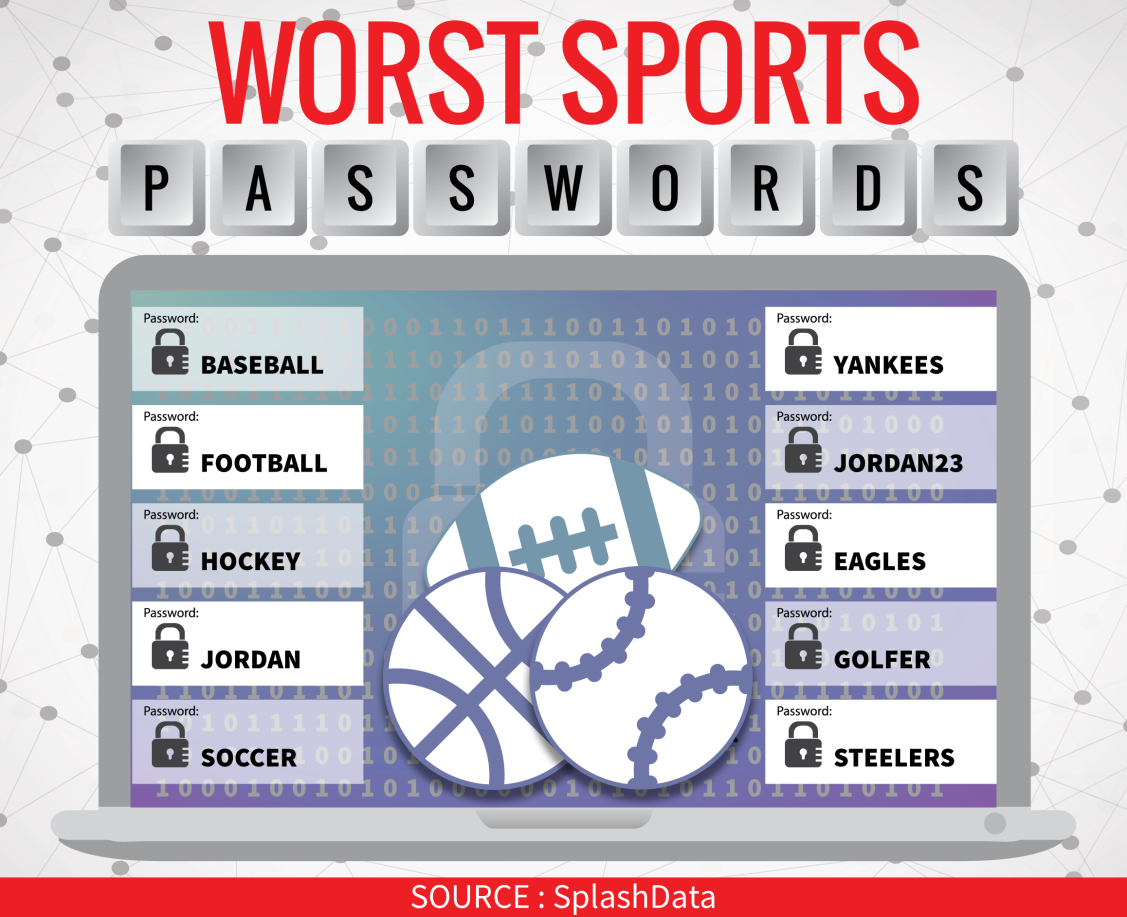For more videos on how to get the most of your devices and how to stay safe online, visit the AVG Academy YouTube channel.
![]()
![]()
For more videos on how to get the most of your devices and how to stay safe online, visit the AVG Academy YouTube channel.
![]()
![]()
For more tips on online security and privacy, check out the AVG Academy YouTube channel.
![]()
![]()
Earlier this week, a list of 25 worst sporting passwords was released by SplashData, and includes a whole raft of easily guessable passwords, the most common being “baseball” and “football”.

In fact, baseball and football are so common that they appeared on the list of overall worst passwords published earlier in 2015.
It goes without saying that if you see your password among this list it really is time to change it. Having a weak password can make it easy for attackers or scammers to gain access to your accounts and the data stored within.
Creating a strong password is much easier than winning the World Series and in a few simple steps you can have a password that can help keep your data secure while also being easy to remember.
For tips on what to avoid when getting a new password, be sure to check out this video from AVG Security Expert Michael McKinnon.
Cloud services are incredibly convenient and can also be a great cost saving measure. But you shouldn’t blindly place trust in cloud services without doing some research first.
If you are considering using a cloud service, I would strongly advise finding the answers to the following questions before signing on the dotted line.
Is it for personal or business?
There are plenty of free options, but you need to determine which is the most reliable and secure, especially if your business will depend on it.
What are you storing and why?
The different cloud services that are currently available offer a variety of features and options that may be better suited to a particular need.
What sort of encryption is available?
Does the cloud storage service offer encryption? If the provider is hacked, your data will be vulnerable. So if they don’t offer encryption then you might want to encrypt your vital documents before uploading
Does the service offer extra security?
Where possible use additional security features like two-factor authentication and login notifications to ensure you have the added layer of security to prevent unwanted breaches.
Do you have adequate backups?
Don’t rely on a single backup, especially for your critical files. You should also backup regularly.
Social media is a great way of communicating with friends and family, but’s also a fantastic tool to meet new people with similar interests. You should be careful though, as popular social networks can have fake accounts which can pose a risk to your privacy or security.
One way to help stay safe is to learn how to spot these fake accounts and how to report them to the social network.
Beware of bio links
Spammers, scammers and hackers often use links in their Twitter bios (as as their feed) to get users to visit malicious sites.
Compare their followers
Fake or spam Twitter accounts follow thousands of users of users but have very few followers themselves
Watch out for strange mentions from strangers
You may get a random tweet from or mention thats makes no sense, This is often a sure sign that it’s a fake or malicious account
Beware of links tweeted with popular hashtags
Scammers often use trending or popular hashtags to tweet malicious links or get you to view their bio link
Until next time, stay safe out there!
Kids can put a lot of pressure on parents to let them use Facebook. However there are several important things that parents should know before making a decision either way.
So do you still think kids should be using Facebook?